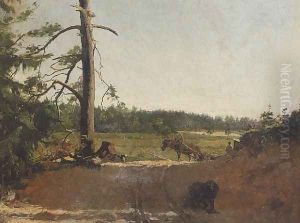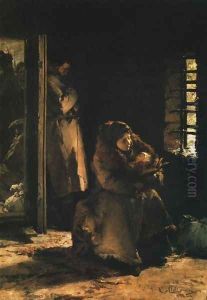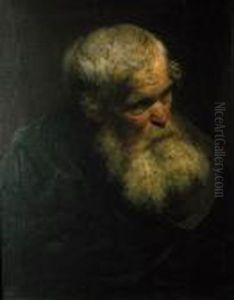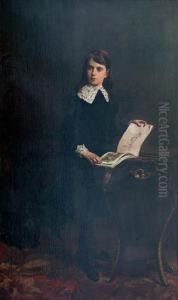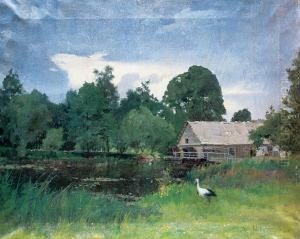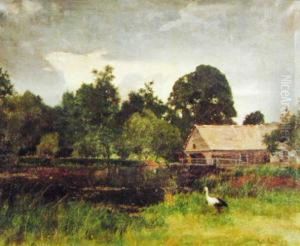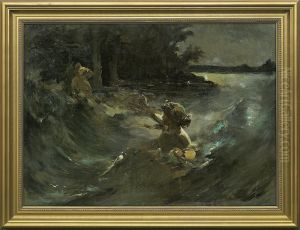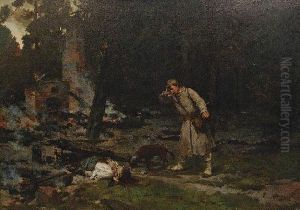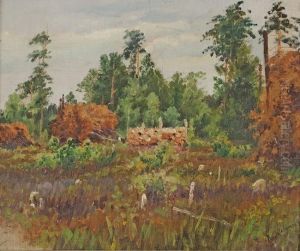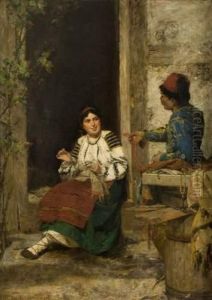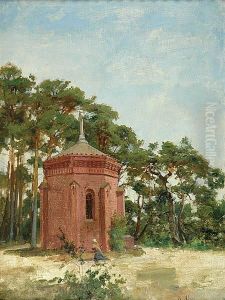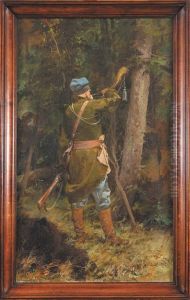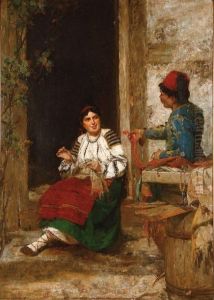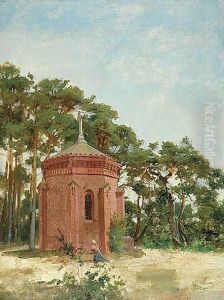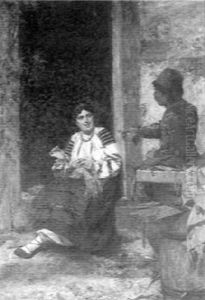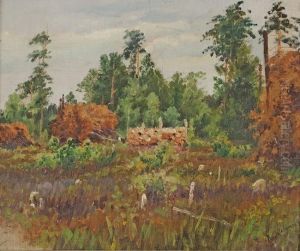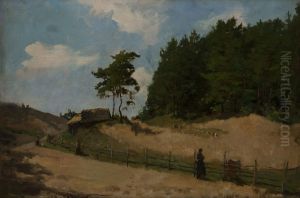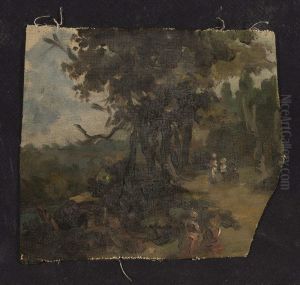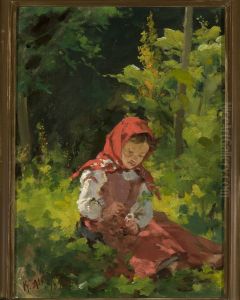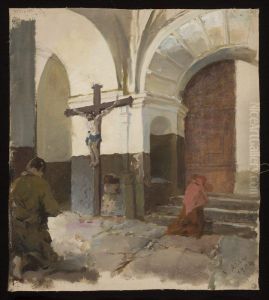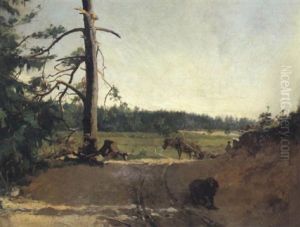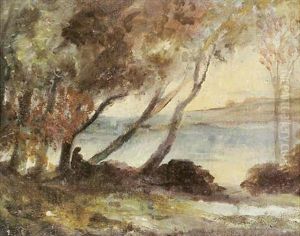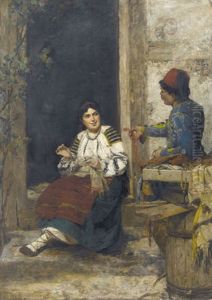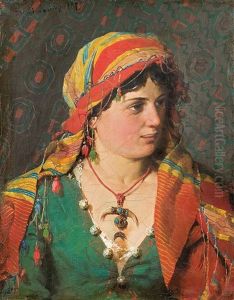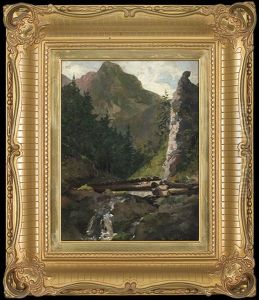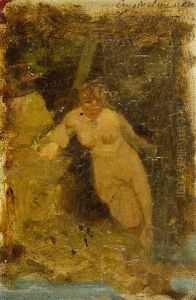Kazimierz Alchimowicz Paintings
Kazimierz Alchimowicz was a notable Polish-Lithuanian painter, born on November 20, 1840, in Dziembrów, Poland, which was then part of the Russian Empire. He was known for his romantic and nationalistic themes, which were common among artists and intellectuals of his era in Polish territories under partition. Alchimowicz originally intended to pursue a career in engineering but was drawn to the arts, particularly painting, which he studied at the School of Fine Arts in Warsaw.
After his education, he became involved in the January Uprising of 1863 against the Russian Empire, which was a defining moment in his life and work. After the uprising failed, Alchimowicz was exiled to Siberia, where he spent several years. This experience had a profound impact on his art, as he began to incorporate themes of suffering, patriotism, and the beauty of his homeland into his paintings.
Upon his return from exile, Alchimowicz settled in Warsaw and continued his work as an artist. He became part of the art community, engaging with other artists and intellectuals who were passionate about Polish culture and history. His paintings often depicted historical scenes, landscapes, and genre scenes that highlighted the struggles and the spirit of the Polish people.
Alchimowicz's work received recognition during his lifetime, and he was able to exhibit his work in various prominent venues. He taught at the School of Fine Arts in Warsaw, influencing the next generation of Polish artists. His paintings can be found in several museums and private collections, and they continue to be appreciated for their emotional depth and their portrayal of Polish history and landscapes.
Kazimierz Alchimowicz passed away on December 31, 1916, in Warsaw. His legacy lives on through his artwork, which remains an important part of Polish cultural heritage and continues to inspire interest in the country's past and artistic expression.
